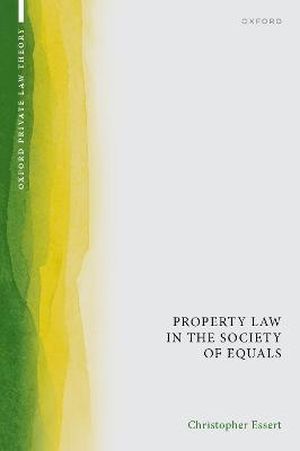
Property is often seen as fundamentally inegalitarian, leading many to believe that a world without property would be a more equal one. Property Law in the Society of Equals challenges this view, demonstrating instead that property is essential for a society of equals. Property, as the legal realization of the idea of yours and mine, creates the conditions for us to relate to each other on equal terms.
This conception of property allows for an examination of many of its core doctrines, including trespass and nuisance law, the law of acquisition, possession, and transfer, the law of leases, and the law of servitudes. It also reveals the distinctive place of property within private law more generally, and how to think about novel or controversial cases of property rights. Moreover, the idea that property is fundamentally egalitarian generates a radical critique of our present systems of property. It shows that various forms of public law regulation of property - including the right to housing and public housing itself - are justified by the same principles that underlie the need for property in the first place.
Property Law in the Society of Equals offers a thorough and insightful account of a fundamental legal subject matter, and a compelling call for the reform of property on more egalitarian lines.